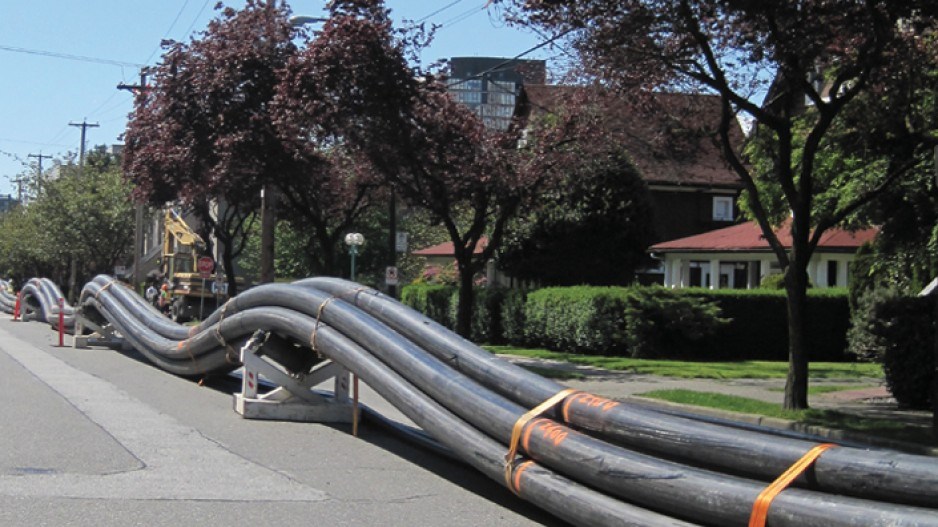British Columbia energy observers are split on whether Jessica McDonald is an inspired choice as BC Hydro CEO – or is too close to the B.C. government.
“We're disappointed that they haven't brought in somebody with extensive utility experience,” Richard Stout, executive director of the Association of Major Power Consumers, told Business in Vancouver. “What is needed here is a major change in culture and outlook at BC Hydro.”
McDonald was named chief executive officer of the Crown corporation on May 29. She replaces Charles Reid, a former BC Hydro CFO who stepped into the CEO role after the departure of Dave Cobb.
McDonald spent nearly 20 years as a civil servant in the provincial government and from 2005 to 2009 served as deputy minister to former premier Gordon Campbell, cabinet secretary and head of the public service.
Her connection to Campbell and his climate policies, which included the introduction of B.C.'s carbon tax and the encouragement of smaller, independent power projects, gives Nigel Protter hope that McDonald will bring a more “global” view to the utility.
“What you're looking for in a CEO is not necessarily someone who is just from the energy world, but also someone who is effective on the issues,” said Protter, executive director of the BC Sustainable Energy Association.
BC Hydro is reinvesting in the province's energy infrastructure, which includes replacing transmission lines and updating its metering system. It is also proposing to build the Site C dam on the Peace River at a cost of $8 billion.
John Horgan, leader of the BC NDP, argues that because the company is in a construction phase rather than an operational cycle, as was the case throughout the 1980s and '90s, it needs a leader with energy industry or project management experience.
“My concern is that Ms. McDonald will have more interest in the needs of government than the needs of ratepayers at BC Hydro,” Horgan said, calling McDonald a “Liberal partisan.”
Horgan said he would have liked to have seen an appointment like Dave Cobb, a former executive with the Vancouver Canucks and VANOC who headed BC Hydro for a mere 17 months.
“He brought new eyes to the operation. … He came from a business background.”
The B.C. government is heavily involved in BC Hydro, having taken over many of the strategic decision-making powers that once lay with the BC Utilities Commission (BCUC), according to David Craig, executive director of the Commercial Energy Consumers Association of British Columbia.
For instance, said Craig, BC Hydro used to be required to file its integrated resource plans (IRP) with the BCUC. Those are now filed with the provincial government.
“Within that IRP there is anticipation of a number of key elements and decisions that have very significant effects on future costs and availability and security of supply of electricity in the province,” Craig said.
“When the filing of resource plans was with the BCUC, interveners had the chance to ask questions and explore what was in there at some length and at a deliberative process.”
A joint review panel studying Site C recently recommended that the BCUC should review the project before it is approved. The provincial government has so far exempted Site C from BCUC review.
Controlling costs is another reason BC Hydro should not be led by someone with close ties to the government, Stout said.
“Virtually every expenditure that BC Hydro has made has not been reviewed by any regulator in any sensible way,” Stout said. “Nobody has been able to determine whether these plans and expenditures are reasonable at all – it's all simply been done by government fiat, and I don't think anyone coming from government really has any other background in doing it any other way.”
Stout added that Energy and Mines Minister Bill Bennett is currently reviewing the BCUC, and that he expects to see a gradual culture change at BC Hydro after that review is completed. However, his organization is disappointed that the change to a regulated utility from what is essentially a government department won't happen faster.
Grand Chief Stewart Phillip of the Union of BC Indian Chiefs said he developed “a great deal of respect” for McDonald while working with her on the 2006 New Relationship Agreement with B.C. First Nations.
But Phillip doesn't think McDonald will be able to leverage her considerable negotiating skills to get the blessing of First Nations on the controversial Site C proposal.
“There's a vast difference between the respect you carry for an individual and the larger issues,” he said.
BC Hydro did not respond to BIV's request for an interview.




